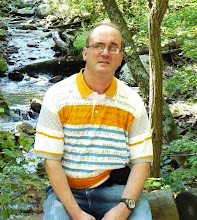Camp Lemonnier is named after General Emile Rene Lemonnier, the Commanding General of the Second Brigade Indochine, under the Vichy French administration in Indochina, who met his untimely end when he was executed - beheaded actually - by the Japanese in March of 1945 at the outset of the "Second French Indochina Campaign.
The Second French Indochina Campaign, also known as the Japanese coup of March 1945, was a Japanese military operation in Cambodia, Laos, and Vietnam, then a French colony and known as French Indochina, during the final months of the Second World War. Vietnam was not a real colony at this time. The area known as Cochinchina was a colony proper. However, the regions of Annam and Tonkin were French "protectorates". The campaign resulted in short-lived independence of the Empire of Vietnam, the Kingdom of Laos and the United Kingdom of Cambodia, and in the complete disorganization of Indochina's French administration. A small-scale campaign of guerrilla warefare followed, while France prepared to retaliate, but Japan ultimately surrendered before any major military engagements could take place.
In 1945, the Japanese feared an Allied offensive in French Indochina. The Vichy regime had ceased to exist in Europe, but its colonial administration was still in place in Indochina. In early March, Japanese forces were redeployed around many of the main French garrison towns, and on 9 March 1945, the Japanese delivered an ultimatum for the French troops to disarm, without warning. Those that refused were immediately attacked and in most cases massacred. In Saigon, the two senior Vichy officials, General Emile-Rene Lemonnier and Resident Auphalle, were executed by decapitation.
General Lemonnier, who was a commanding officer of the 3rd brigade of the division of Tonkin in Indochine, now known as Vietnam. In 1945 after a takeover of Manila the Japanese attacked and Lemonnier was captured and beheaded on 10 March 1945. To know what General Lemonnier symbolizes, one only has to read the sign along the Avenue named after him in France:
"The ten-March 1945, Lang Son captured by the enemy, out of ammunition, has twice refused to sign a total capitulation, preferred to be beheaded rather than forfeit the honor will remain in history as a striking example of what is the will of the French character."
Tuesday, February 16, 2010
Subscribe to:
Post Comments (Atom)


No comments:
Post a Comment